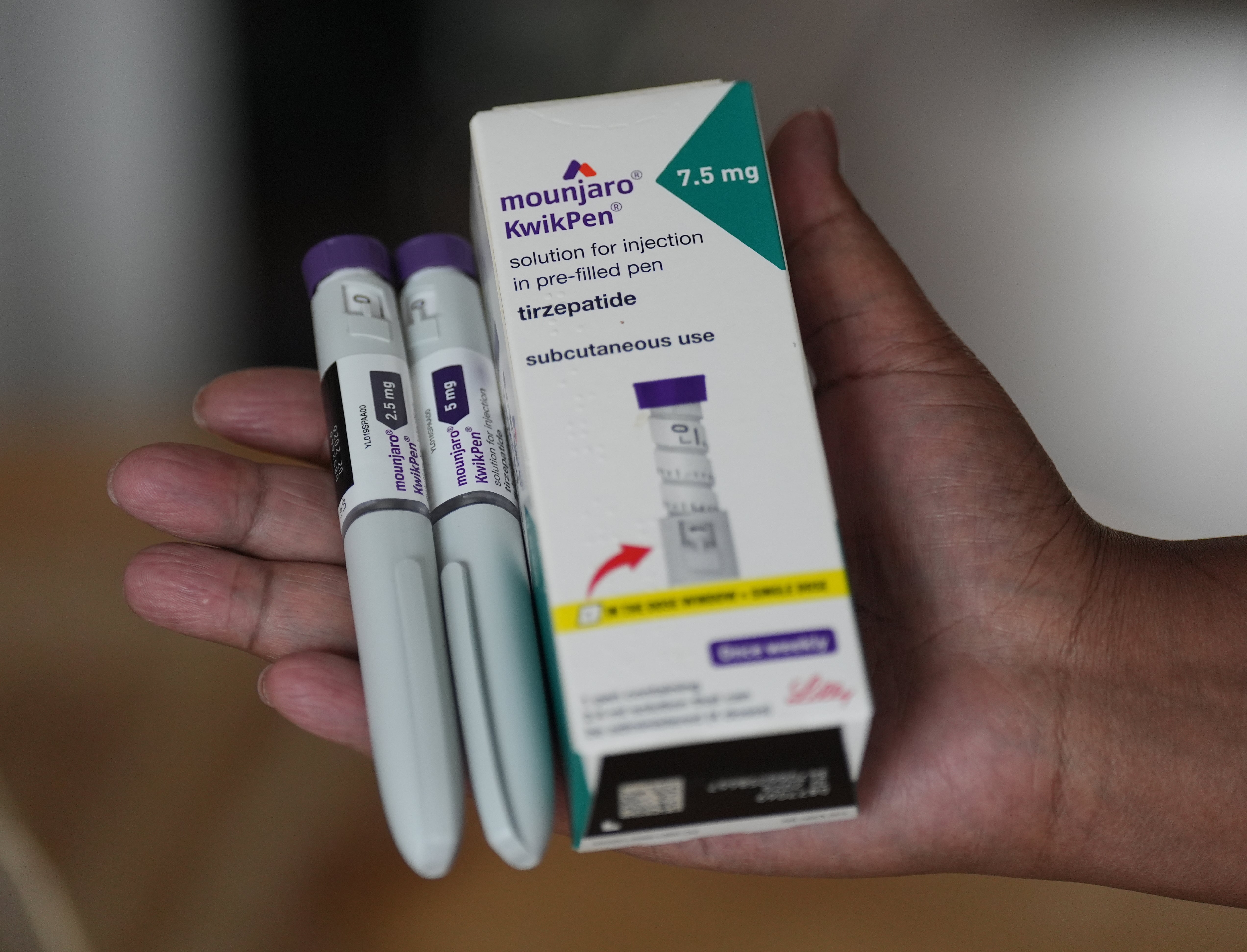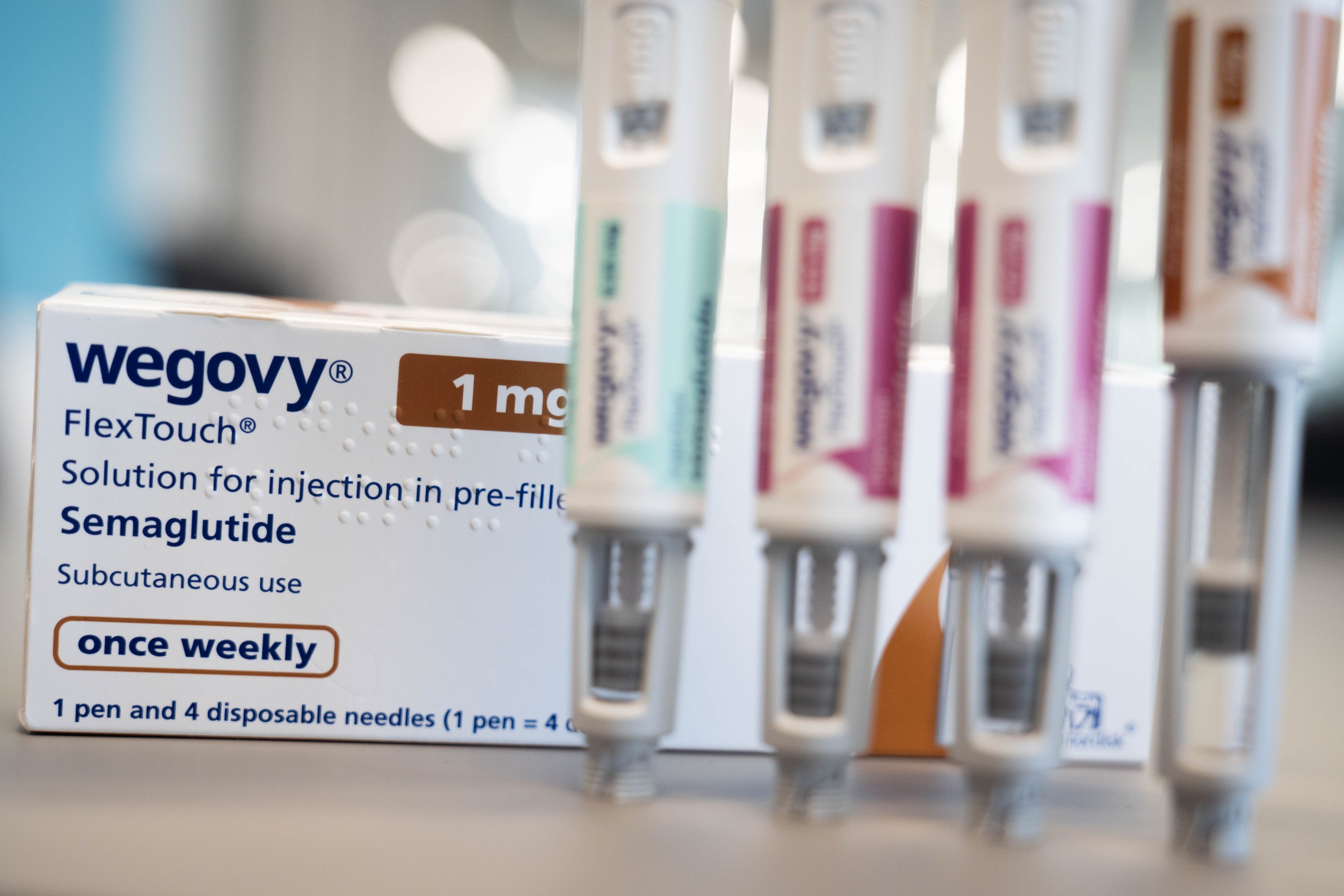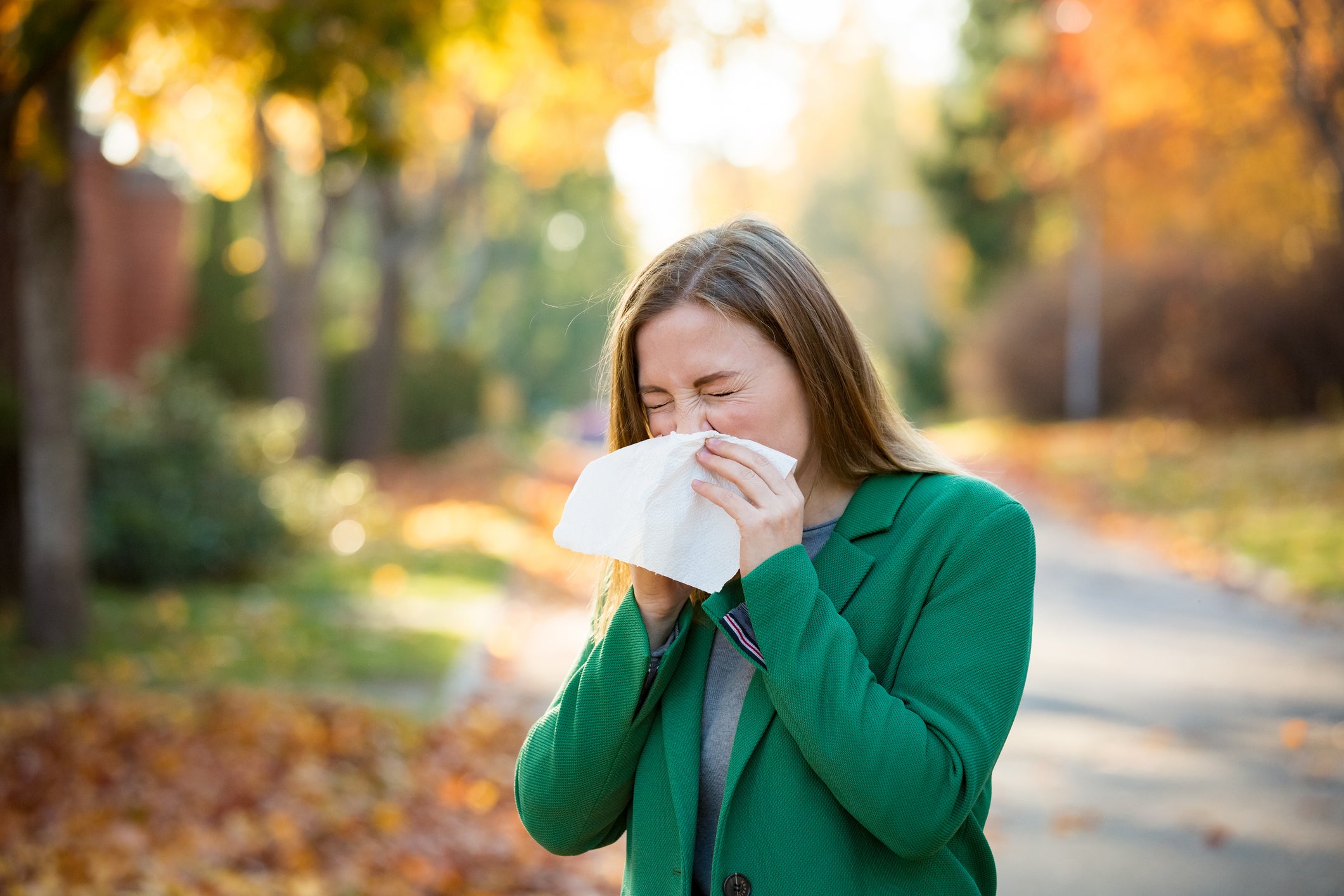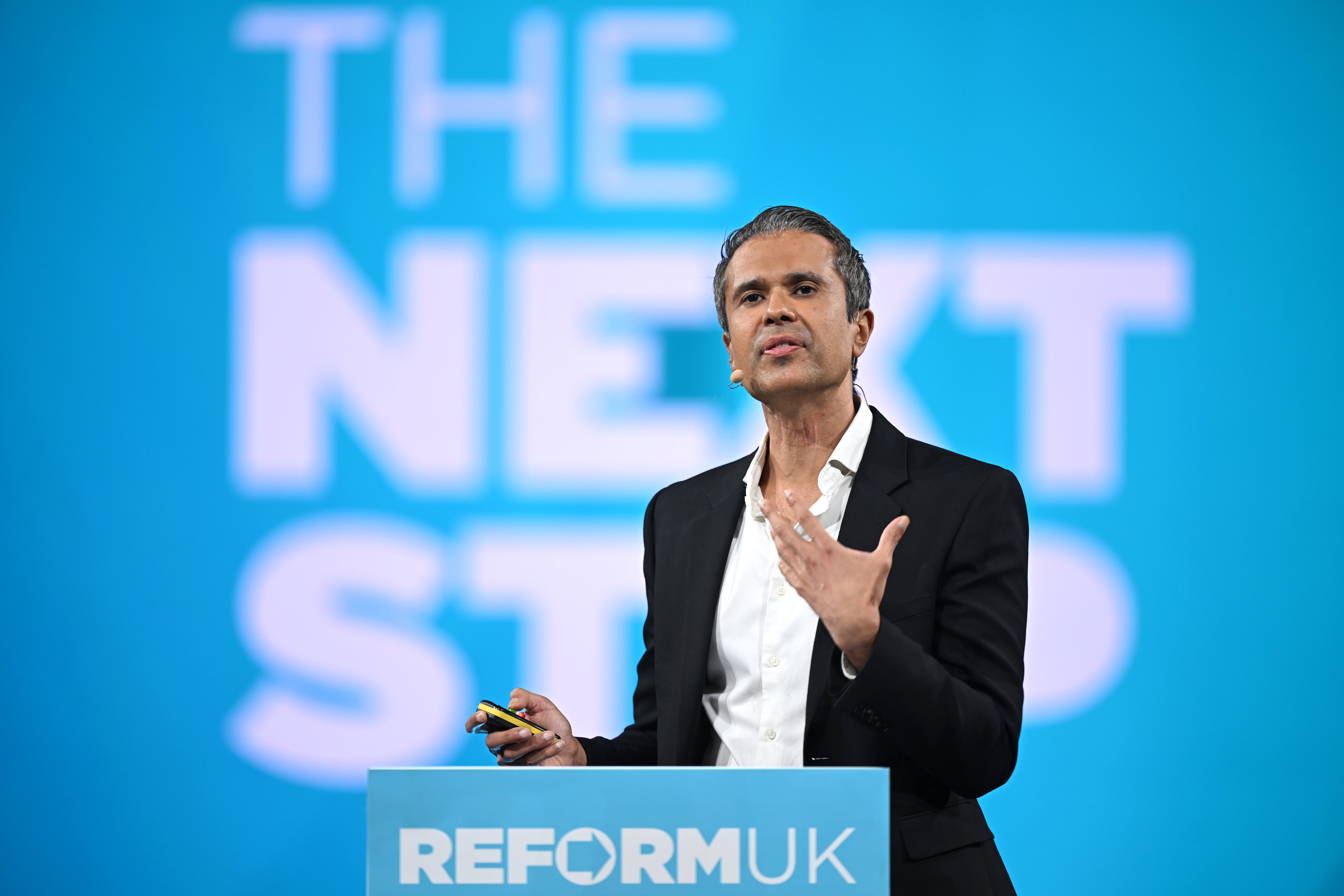

HEALTH
Mounjaro vs. Wegovy: Which Weight Loss Injection Is Right for You? Find Out How to Buy Safely!
Published
2 months agoon
By
OBS
It only arrived in the UK a little over 20 months ago, but since its release, Mounjaro has transformed the market for GLP-1 medicines, with more than half of the 1.5 million people taking weight-loss drugs in the UK on the drug.
Dubbed the “King Kong” of weight-loss medication, Mounjaro, the brand name for tirzepatide, has helped almost a third of people lose a quarter of their bodyweight, according to a trial presented at the European Congress on Obesity this year.
Its rival, Wegovy, saw just 16 per cent of users achieve the same results.
Mounjaro is available on the NHS, although 90 per cent of users get their syringes containing four measured weekly doses through weight loss management plans at pharmacies on the high street, or online.
It only takes filling out a questionnaire, followed by an approval from a doctor for the drug to be prescribed.

But users face problems on the horizon, with manufacturer Eli Lilly announcing it will raise prices by 170 per cent from Monday, 1 September.
And with the price hike leading to a surge in demand, some pharmacists are suggesting people switch to Wegovy – but what is the difference, are the side effects different and will it have the desired impact?
Can I safely switch from Mounjaro to Wegovy?
The answer is yes, but anyone switching drugs as part of their weight-loss management plan should check with their doctor first.
If the doctor confirms the drug is suitable, then a starting dose would be suggested based on the amount being taken from Mounjaro.
Users must, however, wait seven days between their last Mounjaro injection and Wegovy jab.
The drug is available, like Mounjaro, through pharmacists.

Asda’s online pharmacy states: “Switching from Mounjaro to Wegovy is straightforward, but you must follow the correct steps to stay safe.”
How much does Mounjaro cost compared to Wegovy?
Wegovy is also self-administered through weekly injections, but dosages are smaller, which is reflected in the lower prices.
At Boots online pharmacy, the current monthly cost for Wegovy’s lowest dosage of 0.25mg a week is £139, rising to £228.89 for the highest dosage of 2.4mg.
At the same pharmacy for Mounjaro, the monthly cost of the lowest dosage of 2.5mg is £219, going up to £249 for the highest dosage of 15mg.
However, the price of Mounjaro will increase from Monday, 1 September.
At Boots, the new price for Mounjaro will be £177.30 for a month’s supply of 2.5mg, and £335 for 15mg.
What are the side effects of Mounjaro and Wegovy?
The drugs work similarly, but have some differences, such as active ingredient, dosage schedule, and manufacturer.
Both suppress a user’s appetite by activating a receptor called GLP-1 to send signals to the brain on hunger, slow down the emptying of the stomach and reduce blood sugar levels.
Mounjaro also contains ingredients that activate a receptor called GIP, which helps prevent fat from building up.
But as with any drug, there can be side effects.
Very common side effects for Mounjaro are: nausea, diarrhoea, vomiting and constipation.
For Wegovy, they are: nausea, diarrhoea, vomiting, constipation, headache, stomach pain and feeling weak.
Common side effects for Mounjaro are: dizziness, stomach pain, reflux, hair loss, gallstones, allergic reaction, low blood pressure, feeling tired, increased levels of pancreatic enzyme lipase in blood and increased calcitonin levels in blood
Common side effects for Wegovy are: dizziness, stomach pain, reflux, hair loss, gallstones and an inflamed stomach.
Mounjaro or Wegovy, which works better?
The first head-to-head trial of both weight-loss drugs showed that Mounjaro was more effective, although, with both drugs, there are concerns that users put the weight back on after coming off the jabs.
The research, funded by Mounjaro’s manufacturer Eli Lilly and presented at the European Congress on Obesity in Malaga, showed 32 per cent of people lost a quarter of their body weight on Mounjaro compared to 16 per cent on Wegovy.
It also showed that those on Mounjaro had better blood pressure, blood sugar and cholesterol levels.
However, the National Institute for Health and Care Excellence (Nice), the UK’s health watchdog, has raised concerns about patients regaining weight after stopping taking weight-loss drugs.
It has said that those coming off the medication should be offered “structured advice and follow-up support” to mitigate weight gain.
You may like
-


Is China Beating the US in the Trade War? Find Out Now!
-
Surprising News: Inflation Plummets to 18.02% After Six-Month Decline – Find Out What This Means for You!
-


Study Reveals Mounjaro and Ozempic Demand Causing NHS Waiting List Delays!
-
Unbelievable Surge: Stock Market Rakes in N20bn Gain! Find Out What Happened!
-


Trump Claims Infantino Would Instantly Shift World Cup Matches at His Request – Find Out Why!
-


PDP Names Obi as Secretary for 2025 Convention – Find Out What This Means!
HEALTH
Can’t Tell If It’s Covid or the Flu? Here Are the Key Symptoms You Must Recognize as Cases Surge!
Published
6 days agoon
October 16, 2025By
OBS
Health officials are warning of a seasonal surge in flu and Covid-19, with cases already starting to rise as autumn arrives.
But because the two viruses share many symptoms, it’s difficult to tell them apart.
When a sniffle seems to progress further than “just a cold”, it’s hard to know what it might be – but there are differences in how the viruses appear and the risks they pose.
Do I have Covid?
Covid-19 continues to cause serious illness, particularly among vulnerable groups. The virus is constantly evolving, with new variants spreading easily through coughs, sneezes or even conversation.
Vaccination campaigns each autumn continue to try to prevent hospitalisations and deaths.
The list of symptoms has shifted since 2020. Many people now experience cold-like symptoms, such as a runny nose, sore throat or blocked sinuses. But others still report fever or chills, a persistent cough, fatigue, headaches, shortness of breath, or a loss of taste and smell. Nausea and diarrhoea can also occur.
Doctors say a hoarse throat has become one of the hallmark features of the latest variants.

The latest strain, called Stratus, has two variants, XFG and XFG.3. Another recent strain, NB.1.8.1 nicknamed Nimbus, is also prevalent.
“Stratus is linked to hoarseness and fatigue, whereas Nimbus is associated with a ‘razor-blade’ sore throat and digestive symptoms like nausea and bloating,” explains Dr Bruno Silvester Lopes, lecturer in microbiology at Teesside University. “Both are highly transmissible but not more severe than previous variants.”
Despite accounting for a large proportion of new cases, experts are not concerned about the spread, noting it is normal for viruses to mutate and change.
Those aged 65 and over, care home residents, and people with underlying health problems are all entitled to the Covid-19 booster.
Do I have the flu?
Flu is a respiratory infection that strikes hardest in winter and can be far more debilitating than the common cold. While colds typically bring a runny nose, sneezing, watery eyes and mild throat irritation, flu tends to arrive suddenly with fever, aches and exhaustion.
Last winter alone, the flu sent more than 8,000 people to hospital. Over the past two years, at least 18,000 deaths in the UK have been linked to the virus. Children, older adults, people with long-term health problems and those with weakened immune systems face the highest risks.

Vaccination remains the strongest defence. Research shows that last year’s jab prevented thousands of severe cases, cutting hospital admissions by almost a third among over-65s and by more than half among children aged two to 17.
This autumn, the flu vaccine is being offered free to those over 75, pregnant women, children aged 2 and 3 through their GP, and schoolchildren from reception to year 11 via nasal spray. Adults under 65 with certain health conditions are also eligible.
How to tell difference between Covid and a cold
Colds and Covid can be tricky to distinguish as many of their symptoms overlap.
“Both can give you a sore throat, runny or stuffy nose, sneezing, and coughing,” says Dr Chun Tang, a GP at Pall Mall Medical. “However, Covid can also cause fever, fatigue, muscle aches, and that telltale loss of taste or smell – although that’s less common with newer variants.
“Covid is also more likely to make you feel wiped out, like you’ve been hit by a truck, whereas a cold tends to stay in your head and chest.”
“Both spread mainly through droplets when someone coughs, sneezes, or even talks near you,” says Tang. “Covid, however, can also spread more easily through the air in tiny particles that linger, especially in crowded or poorly ventilated spaces.
“So, while a cold might need a bit of close contact to catch, Covid can sometimes sneak across the room if you’re unlucky.”
Are cases climbing now?
According to the UK Health Security Agency, levels of flu and Covid-19 are already on the rise running into winter, joining other seasonal bugs such as RSV and norovirus.
UKHSA reported an increase in the number of reported Covid diagnoses in its 9 October report, with the most prevalent strain noted as Stratus XFG. Flu activity was also increasing among young adults with a surge in emergency department attendances for flu-like illnesses.
Experts say the risk is highest during the colder months when viruses spread more easily indoors.
Officials are urging everyone eligible to take up their vaccines to reduce the strain on hospitals and protect the most vulnerable. Both flu and Covid-19 can be serious, but prevention and early awareness remain the best tools against them.
HEALTH
Shocking Recall: Grocery Store Taco Kits Contain Hot Chocolate Packets!
Published
6 days agoon
October 16, 2025By
OBS
The Giant Company is recalling its Giant and Martin’s-branded hard taco dinner kits after hot chocolate sachets were discovered inside the packages.
The mix-up, announced October 10, could pose a risk to consumers with milk allergies.
The recall affects the 9.4-ounce Giant/Martin’s Hard Taco Dinner Kit (UPC 068826757516) all lot and codes, with a best-by date of March 13, 2026.
Consumers with a milk allergy should not eat the kits. Anyone who purchased the affected product can return it to a nearby store with a receipt to receive a refund.
Milk allergy is a common food allergy in children, caused by cow’s milk or milk from other mammals, according to Mayo Clinic.
.jpg)
Reactions can occur soon after consumption and range from mild symptoms like hives, vomiting, and digestive issues to severe, life-threatening anaphylaxis.
The main treatment is avoiding milk and milk products. Most children outgrow the allergy, while others may need to avoid milk long-term.
Meanwhile, Sno Pac Foods, a Minnesota-based company, has issued a nationwide recall of its frozen spinach products due to potential contamination with Listeria monocytogenes, a bacterium that can cause serious infections.
The recall affects two products: Del Mar 35-pound Bulk Organic Frozen Spinach and Sno Pac 10-ounce Organic Frozen Cut Spinach. These products were distributed across various retail stores in the U.S. The recall was prompted after a bulk case of spinach from a supplier tested positive for the bacterium.
This same lot was used to repack the Sno Pac Organic Frozen Cut Spinach into 10-ounce bags. As a precaution, Sno Pac Foods has suspended production of these products while investigating the source of the contamination.
No illnesses have been reported in connection with the recalled products. However, Listeria monocytogenes poses a significant health risk, particularly to young children, the elderly, pregnant women, and individuals with weakened immune systems.
In healthy individuals, infection may cause short-term symptoms such as high fever, severe headache, stiffness, nausea, abdominal pain, and diarrhea. Pregnant women are especially vulnerable, as infection can lead to miscarriage or stillbirth.
HEALTH
Could Trump’s Meds Be Slowing Him Down? Expert Warns They Might Not Be Helping!
Published
6 days agoon
October 16, 2025By
OBS
An adviser to Health Secretary Robert F. Kennedy Jr. warned Wednesday that President Donald Trump may appear to be “slowing down” because of the medication he takes, as questions continue over the president’s mental and physical health.
In a speech to the European Parliament, Dr. Aseem Malhotra, a British cardiologist who advised the lobby group Make America Healthy Again, said that Trump, 79, may be suffering from fatigue due to his use of cholesterol medications, or statins, and aspirin.
“President Trump is taking statins; he’s on two cholesterol drugs… This man does not have any cardiovascular disease,” Malhotra said during a launch event for a new European health activism organization, Make Europe Healthy Again (MEHA).
“If you’re over 75 and have no cardiovascular disease, the benefit of statin is – are you ready? One in 446. You have to give the statin to 446 people to prevent one cardiovascular event,” he said. “In other words, no significant benefit.”
Malhotra, a vaccine skeptic whose anti-COVID shot and anti-statin views have been rebuked as misinformation by medical experts, has been a close ally to Kennedy.

His comments come amid claims that the president may be showing signs of “cognitive decline,” due to mixing up names and other gaffes. Despite the speculation, the White House said last week that Trump was in “excellent overall health” following a “routine check-up” at Walter Reed Medical Center.
In addition to concerns about his mental acuity, Trump’s physical health has also come under question. The president has often been photographed with bruising on his right hand, raising concerns that he is suffering from some illness. The White House insists that this is a result of him shaking hands with a large number of people and his use of aspirin, which he takes as a cardiovascular protection.
White House officials revealed earlier this year that he had been diagnosed with chronic venous insufficiency, a non-life-threatening condition caused by the veins struggling to return blood to the heart. The condition is common for people over the age of 70.
During his remarks, Malhotra noted that cholesterol medication often comes with side effects, saying: “The most common ones are fatigue, muscle pain. It can cause brain fog.”
He added: “Now, I know that President Trump is a remarkable man for his age, but there have been reports – probably exaggerated by some sort of devious press for sure. But I know people who are close to him… and of course he is doing a tremendous job and maybe only sleeping four hours a night, and that may be part of it too, but it could also be that he’s slowing down a little bit because of his statins,” he continued.

Malhotra then suggested that Trump go “off his statins, off his aspirin” and would be “feeling great” within a matter of weeks.
He was apparently so concerned about Trump taking the medications that he has reached out to several people close to the president to try and warn him against it, The Daily Beast reported Tuesday ahead of Malhotra’s public remarks.
In a statement to The Independent, the White House said: “President Trump is a champion-level golfer with the mental acuity and energy levels that most young people could not fathom having.”
“So-called medical ‘experts’, especially foreign ones with no relevance or involvement with the Administration, should stop beclowning themselves and marring their credibility by pitching their idiotic hot takes with Fake News outlets that have nothing better to cover,” White House spokesman Kush Desai said.

Along with Trump’s most recent gleaming health report, White House officials noted the president received a flu shot and an updated COVID-19 booster, which Malhotra called unnecessary.
“I think President Trump, I think he genuinely took the [COVID-19] booster, I don’t think that this is a front. I think he believes in what’s happening. He himself is also a victim of medical misinformation,” Malhotra said.
However, recent research shows that COVID shots protect against serious illness and death, especially for people over the age of 65. Researchers from the VA St. Louis Healthcare System looked at data from nearly 300,000 veterans and found that last season’s Covid vaccine reduced the risk of emergency room visits by 29 percent, hospitalizations by 39 percent and deaths by 64 percent for all ages, NBC News reports.
Combining all three outcomes, the shots’ overall effectiveness was 28 percent, making it similar to the flu shot, which ranges from 30 to 60 percent protective against severe illness or death.
An April health report also noted that Trump, who was the oldest person to ever take office in January at 78, was in “excellent” health.
The report also noted that Trump had high cholesterol that was being treated with the statin rosuvastatin and ezetimibe, a medication used to absorb cholesterol. He was also taking a low-dose aspirin as part of the treatment, his doctors said at the time.
While there is no evidence that statins alone cause dementia, the FDA added a safety warning to the medications in 2012 to warn of “notable, but ill-defined memory loss or impairment that was reversible upon discontinuation of statin therapy.”
Last month, Malhotra made headlines after suggesting – without evidence – that King Charles III may have gotten cancer because of the COVID-19 vaccine.
Categories
Top Tags
Related posts






















